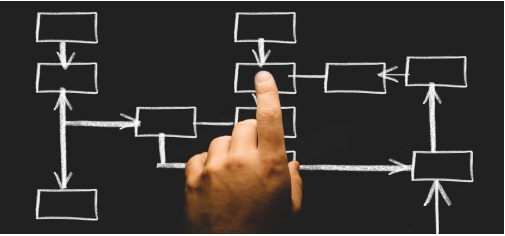

As an event planner, you will inevitably have an event where something goes wrong. A speaker may blow, a projector may stop working, or some lights will malfunction. The most frustrating part of this scenario is that it will rarely be your fault, however, the responsibility will usually fall on your shoulders. It is essential to think about what you are going to do and how you are going to act when things do go wrong at your event. Always be sure you have a backup plan available. This contingency plan could be a real life-saver! In your contingency plan, you should look at priorities and eliminate anything that is not essential to the success of the event. Hopefully, you won't need it, but it never hurts to be prepared. Let's run through some tips.
The "Three C" Plan
It might go without saying but it is imperative that you remain calm when something does go wrong. At Channel Audio, we like to go by what we call the "Three C" plan: Stay Calm, Stay Confident, and Stay Collected. Your event attendees and other people involved will look to you for leadership in the case of a hiccup, and the worst thing you can do is let the stress overwhelm you and not have an answer. Always have a solution for any situation. As the event is happening, run through all possible situations in your head regularly. What are you going to do if that speaker breaks down? What are you going to do if the 1 pm speaker doesn't show up or gets sick? Make sure that you are willing to be flexible while maintaining control.
Anticipate the Worst Case Scenario
One of the best things you can do as an event planner to ensure that your event is still successful when something does go wrong is actually to anticipate what can and will go wrong. Make sure the AV company is bringing backup speakers and cables. Make sure your photographer has backup batteries. It is not just good enough to have one of everything. You have to have backups!

Surround Yourself With Knowledgeable People
It is never a good idea to plan and run an event on your own. Even if you do everything yourself, always bring someone to help you or be around at your event, even if this person is just a friend of yours. You will inevitably find yourself in a situation that requires more than one set of hands. For higher pressure events, partner with another event planner that you have worked with before. Chances are they will think of some scenarios that you will not. If you are training staff to run certain parts of your event, make sure they are aware of the plan in the case of a hiccup.
Be Honest and Have A Sense of Humor
No one is perfect. As an event planner, you will eventually have to face a client that is disappointed after something goes wrong that you were not able to fix. There's no reason to cover up or lie about the problem. The worst thing you can do is place the blame on someone else, whether you like it or not, as an event planner you are responsible for everything. A disgruntled client will always appreciate your honesty about problems. Many times, a minor issue at the event will be something you can laugh about later. Don't be afraid to laugh at your own mistakes. After all, you learned from it, and it will not happen again!
Quick Tips:
- Test all of your equipment extensively
- Make sure your phone is charged
- Write EVERYTHING down
- Always know the weather forecast
- Carry a small and bright flashlight with you
You will not be able to prevent every little issue at your event. However, if you adequately plan and prepare for every little thing to go wrong, you can be confident in your abilities to act quickly and fix issues.






